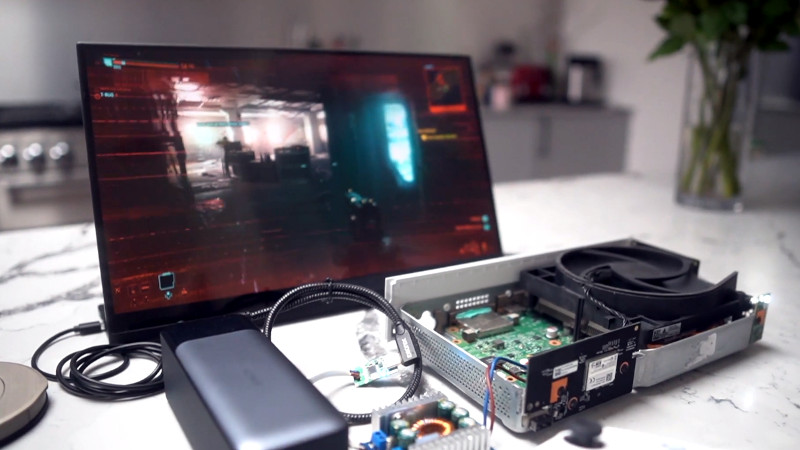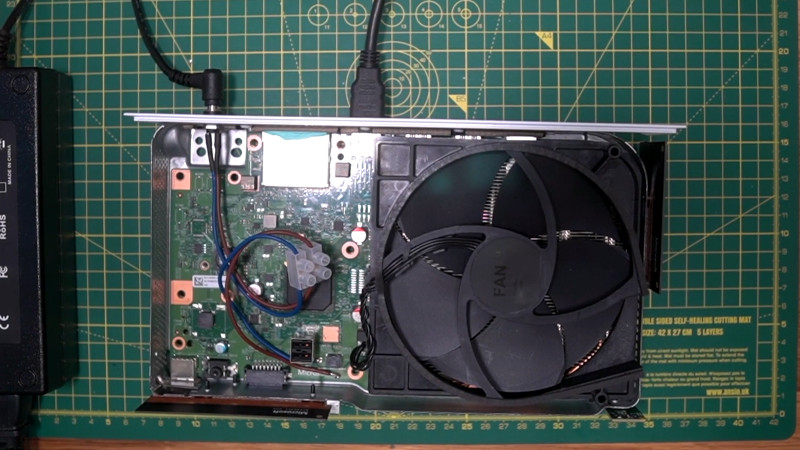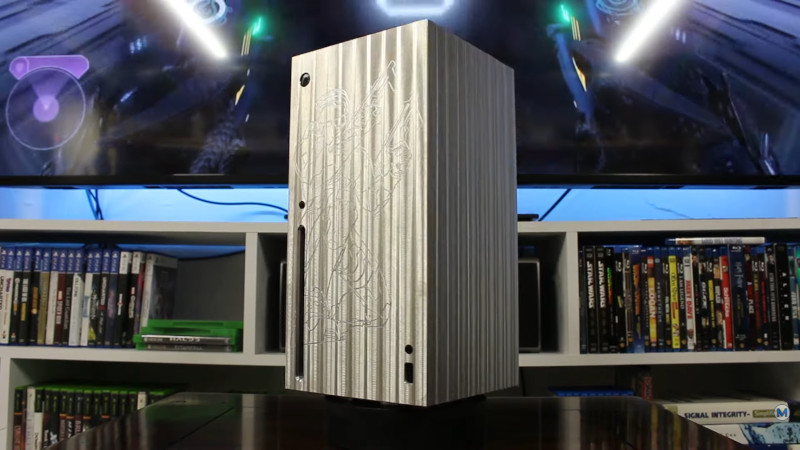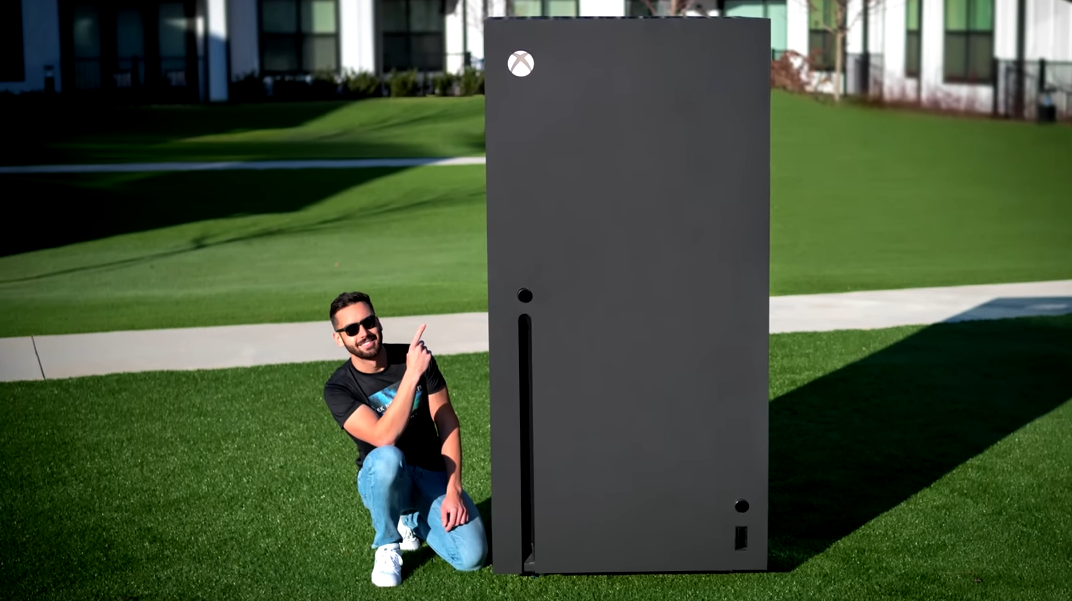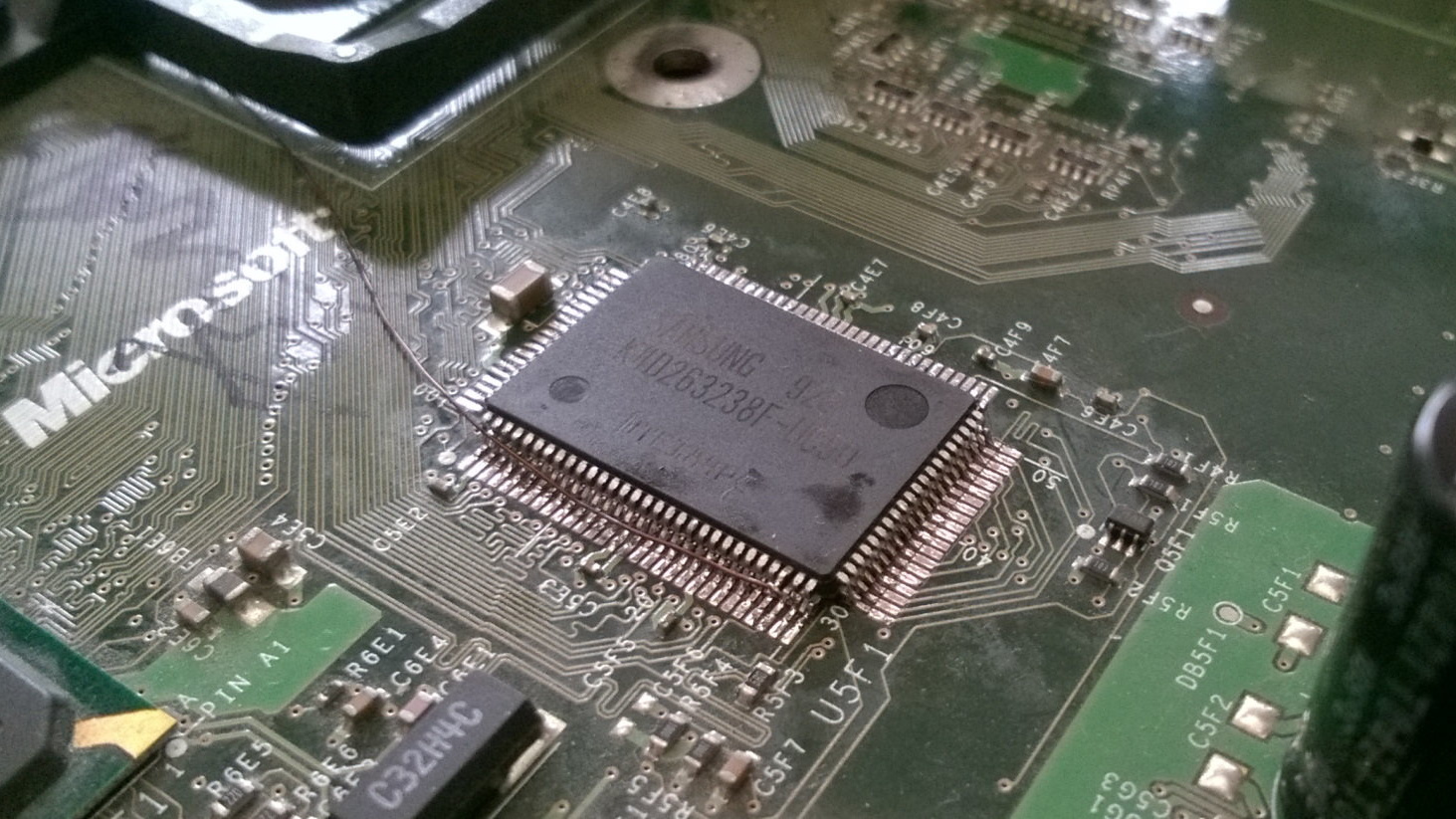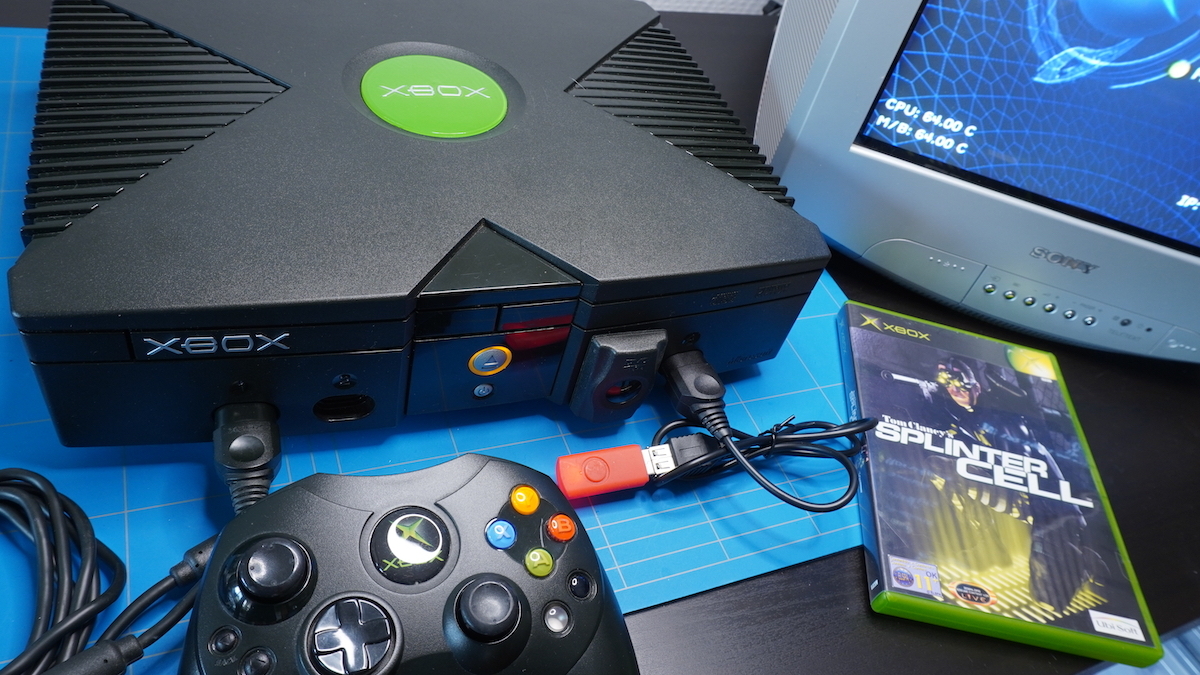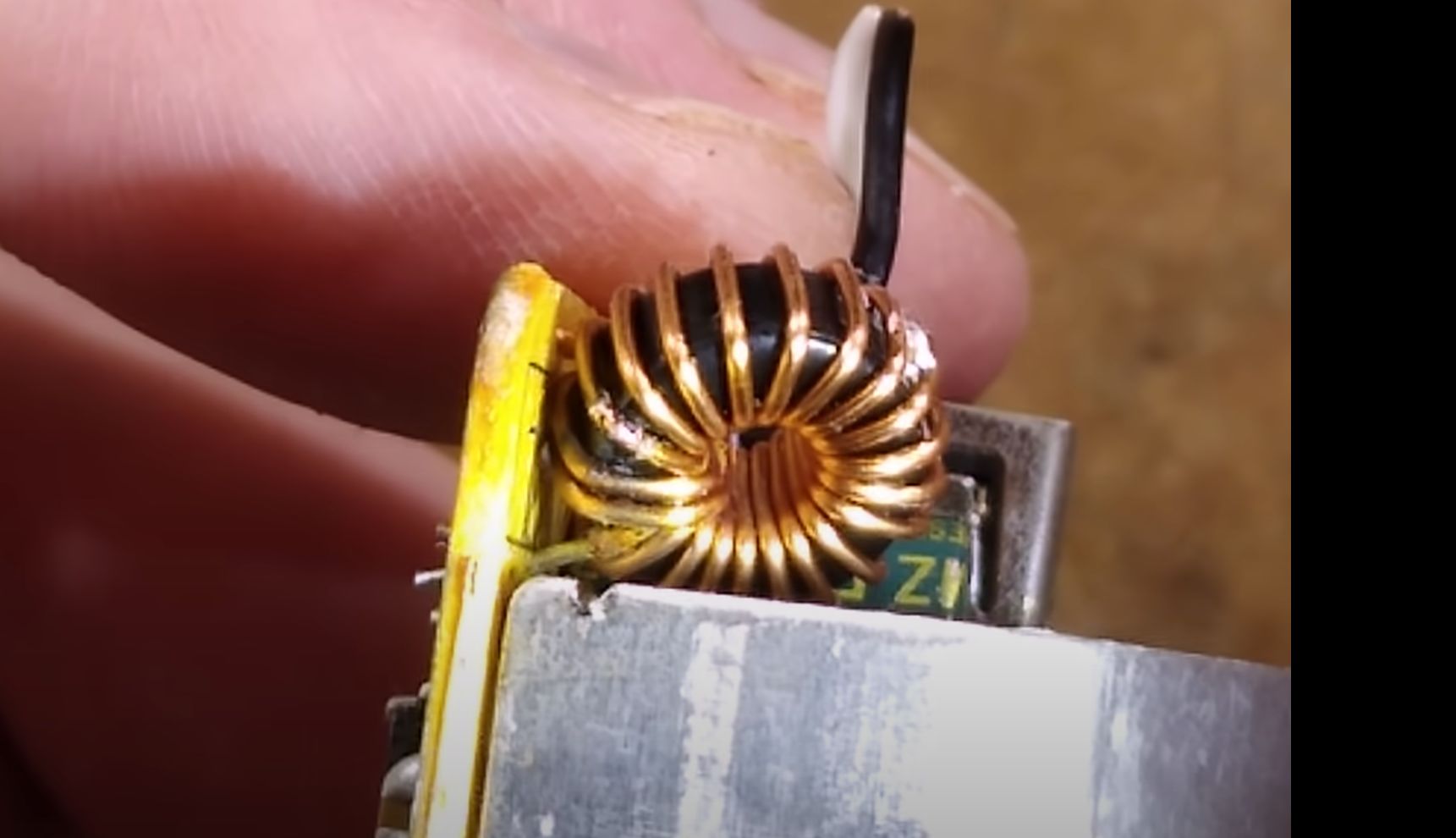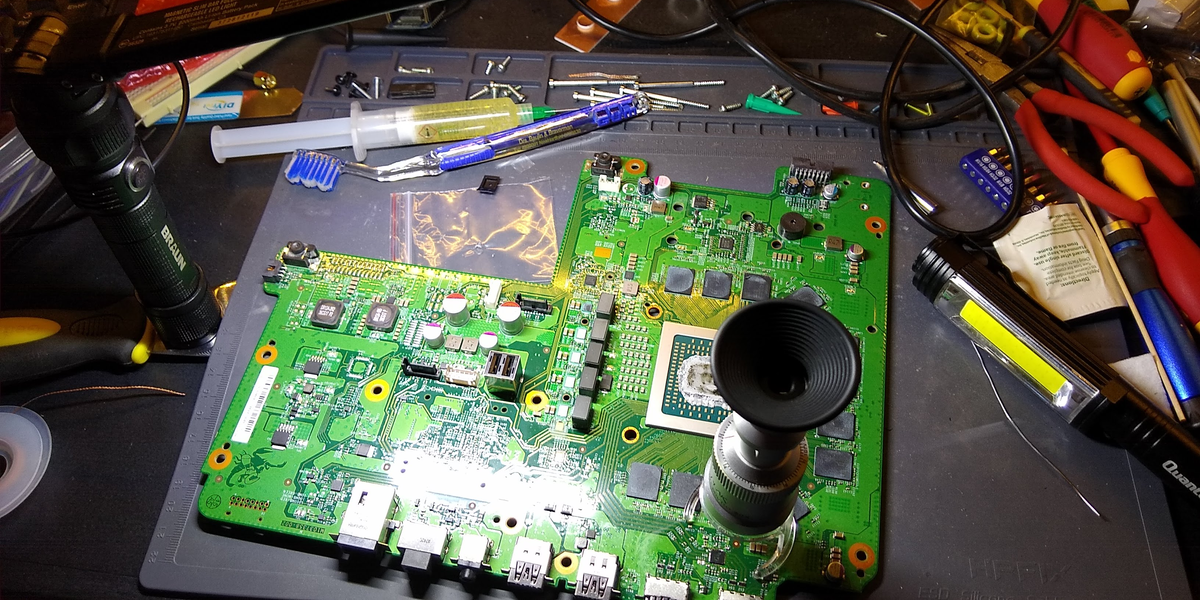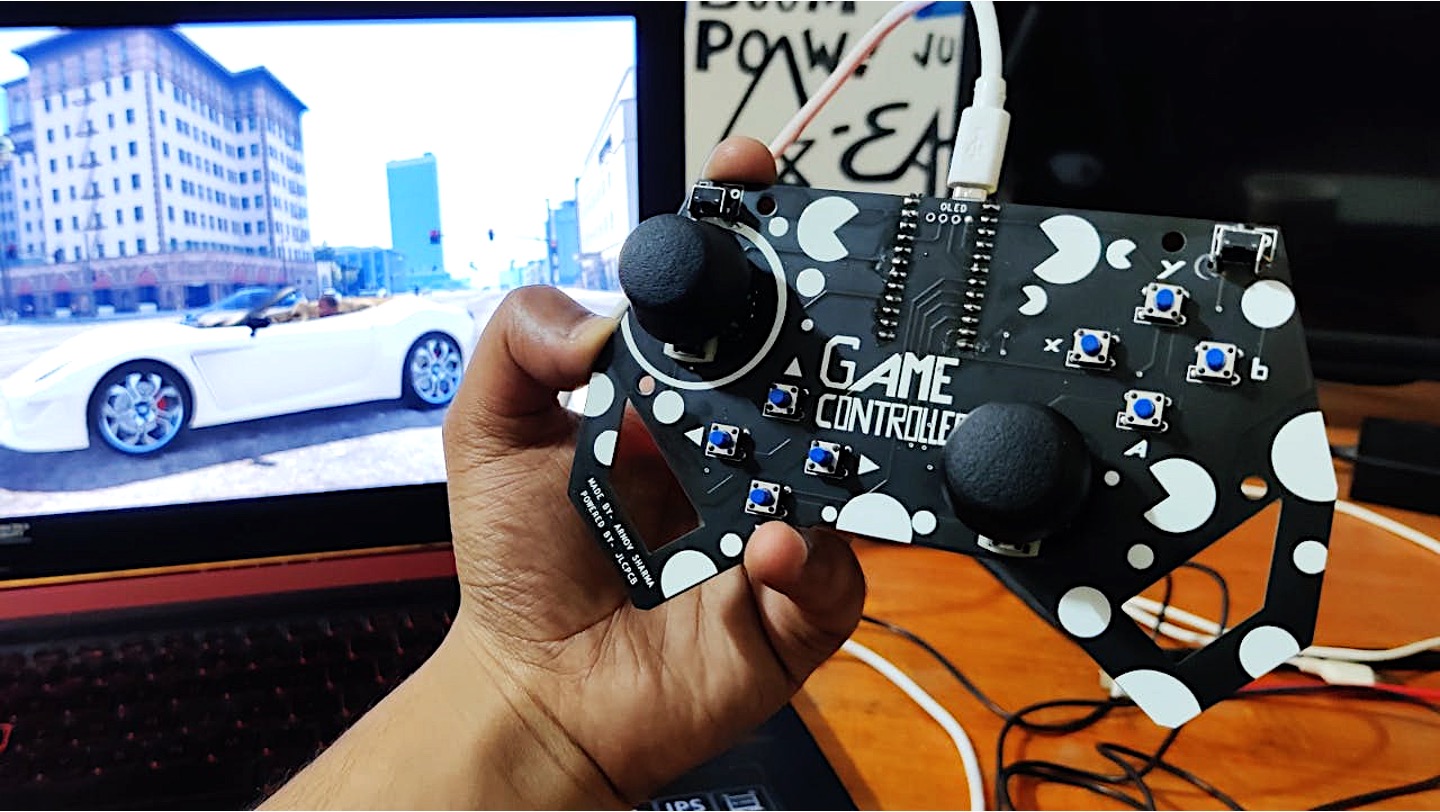#xbox
Beautiful Video and Music. 👍
#Skyrim - #Music & #Ambience
https://www.youtube.com/watch?v=nRe3xFeyhVY
Wiki: The Elder Scrolls V: Skyrim
#The-Elder-Scrolls-V-Skyrim #Game #Playstation #Xbox #Musik #Musique #YouTube #Video #Wikipedia ☮️
Hey everyone, I’m #newhere. I’m interested in #anticorruption, #art, #boardgames, #cardgames, #cars, #chess, #cricket, #datascience, #football, #gaming, #guns, #gunsareforeselfdefense, #humanrights, #humanrightsabuses, #knives, #libertarianism, #manchesterunited, #motorcycles, #movies, #nobs, #pcgaming, #playstation, #privacy, #security, #selfdefence, #selfdefense, and #xbox.
I'm fed up of Facebook's intrusive advertising, data collection, surveillance, and overall BS. Looking for a better social network.
#microsoft = disposable junk. Remember #xbox (cost Microsoft BILLIONS in losses) https://hackaday.com/2022/02/21/the-little-replacement-psu-that-could-kill-a-microsoft-surface-and-monitor/
Xbox vet Ed Fries on blockchain, life as a venture capitalist and the run of extraordinary gaming deals
 Ed Fries at the Economic Development Council of Seattle & King County Economic Forecast Conference. (GeekWire File Photo)
Ed Fries at the Economic Development Council of Seattle & King County Economic Forecast Conference. (GeekWire File Photo)
Ed Fries is having a big week. His games-focused venture fund 1Up Ventures put money into two separate new gaming studios that debuted on Wednesday: Seattle’s Lost Lake Games and Portland’s Gardens.
Fries famously began his career at Microsoft, where he moved from the Office department to internal games development before becoming one of the original creators of the Xbox project. After leaving Microsoft in 2004, Fries has occupied his time with board memberships, advisory roles, and a stint as the founder and CEO of FigurePrints, which sells custom-made *World of Warcraft *statuettes.
Since early 2019, Fries has been a general partner at 1Up, funding exactly 40 games-industry startups to date, including Pacific Northwest developers like Double Loop Games and Starform.
To build the new venture fund, he’s partnered with community builder Kelly Wallick, the brains behind the Indie Megabooth, and part-time fund administrator Chris Wheaton, a Stanford MBA who Fries knew from his time on the board of the Pacific Science Center.
We caught up with Fries this week to discuss some of the big happenings in the gaming industry, how the business has changed from his days at Xbox, and where he’s looking for startup opportunities.
The following interview has been edited for clarity and brevity.
GeekWire: As someone who was on the ground at the start of the Xbox project, what’s your take on** Microsoft’s Activision Blizzard acquisition**?
Ed Fries: I think it shows an amazing commitment to the games business from Microsoft. Back in the day, when I first went to run the games department there, I was told that I was committing career suicide. *[laughter] *Why would I leave my office and go do this thing that, quote, “nobody cares about?”
Now, I think this is the biggest acquisition Microsoft’s ever done.
GW: It is.
*EF: **So apparently they care about games now, so that’s good. [*laughter]
I think it’s smart. It’s about Microsoft using software to change the world, and it’s a part of the world that’s changing because it’s software. … The other big acquisition was my friends at Bungie earlier this week, and congratulations to them as well.
GW: That shocked me. Bungie had seemed to be doing so well all last year that I wasn’t expecting anyone to acquire them.
*EF: **I probably can’t say anything about that on the record. [*laughter] I’ll just say that I’m a big fan of the company. I have a long history with them, of course. I’m the one who bought them and moved them out here to make the first version of *Halo *for the first Xbox.
I’ve always had a huge amount of respect for the team, and a lot of the core team members are still there. I consider them friends. I’m happy to see that their journey’s going to continue forward.
Another retirement gift from the team, showing all the games we shipped while I was there. This is my last post to celebrate the Xbox 20th anniversary. Thanks for all your comments and support!
[
](https://twitter.com/hashtag/xbox20?src=hash&ref_src=twsrc%5Etfw)
[
](https://twitter.com/hashtag/xbox?src=hash&ref_src=twsrc%5Etfw)
[
](https://twitter.com/hashtag/ogxbox?src=hash&ref_src=twsrc%5Etfw)
[
pic.twitter.com/ndP1GaFtRp
— Ed Fries (@Ed_Fries)
[
November 16, 2021
](https://twitter.com/Ed_Fries/status/1460660120753373186?ref_src=twsrc%5Etfw)
GW: That was something I got a kick out of, watching** *all the Xbox 20th*** anniversary celebrations**** last year. So many of them looked like **Halo *trailers.*
**EF: **It’s interesting to speculate where we would be today if that one game didn’t happen.
GW: I can honestly say I have no idea.
**EF: **Exactly. It’s hard to predict the future, even in the past tense.
GW: What’s the effect that you see crypto and Web 3.0 having on the industry?
**EF: **It’s bringing in a whole new class of venture funds, for one thing. New funders are coming in, and some of the existing venture funds are raising special crypto funds. You’re getting this crossover between the game and crypto investors, and then you have a bunch of crypto-specific funds that are looking at gaming as a way to invest. It’s all getting blended together, and that’s causing more startups to happen.
Some of those startups are very crypto-focused and are kind of learning how to make a game. Those don’t tend to be the ones that we lean towards. We lean more towards, if we’re gonna make a crypto investment, we want to see a team that’s game developers first, which has a lot of experience making games and wants to make a game first. The crypto stuff is the icing on the cake rather than being the cake itself.
GW: Like those** ***“play-to-earn” guys*** that were in the news late last year.**
**EF: **There have been a lot of those. I see them in the pitches I get, especially the unsolicited pitches that come into the website. They’ve gone from almost no crypto to almost all crypto in the last six months.
GW: Most of those have seemed really scummy to me.
*EF: *[laughter] *I hear you. It’s the Wild West, and we tread very carefully in that space. One of the good things about having a big portfolio is that you can do a little of everything. The investment we just completed today, which is unannounced, is in a local company that’s focused on *Roblox. It’s one of a handful of *Roblox-*specific investments that we’ve made.
We have a handful of companies that either we invested in because they’re doing some crypto stuff, or more likely, we invested in them before they started to do crypto stuff.
 Ed Fries left Microsoft in 2004. (Flickr Creative Commons / Christopher Michel)
Ed Fries left Microsoft in 2004. (Flickr Creative Commons / Christopher Michel)
*GW: Are you bullish on crypto? *
**EF: **I’ve learned over the years that predicting the future is really hard. What I have seen is that gaming adopts whatever technologies are hot, and sometimes that works and sometimes it doesn’t.
If you go back in time a few years ago, investors were super excited about VR. The VR market is actually growing quite well, but it’s still very small compared to our core market. I did see a thing about how they sold more Oculus Quests last year, I think, than Xboxes. I think VR is probably sneaking up on people who dismissed it.
It’s like that with these Web 3.0 crypto technologies. Games go into all technologies and figure out how to use them for entertainment. There are some core ideas when people are building crypto games that I think are really interesting.
‘I’ve learned over the years that predicting the future is really hard. What I have seen is that gaming adopts whatever technologies are hot, and sometimes that works and sometimes it doesn’t.’
One is around object ownership, and in some sense, this has been around for a while. If you look at gun skins in *Counter-Strike: Global Offensive, *there’s a multi-billion-dollar market of people selling those skins, which are basically textures that apply to guns in Valve’s game. It just wasn’t built before the crypto technologies, but it could just as easily have been built on the blockchain and people could buy and sell them.
Even back in World of Warcraft, *there were gold farmers and sellers. People would build powerful characters and sell the accounts they were on. Typically that was frowned on by the companies that ran games like that, but Valve embraced it for *CS:GO. I think that’s one reason it’s been so popular, and the blockchain does enable those kinds of things in a more general way. I do think that’s an example of a technology that makes sense in games.
You mentioned “play-to-earn” earlier, which you can see as kind of a natural evolution from games costing $50 to games being “free-to-play,” in quotes, to actually being paid to play games. I think that’s also an area that’s potentially interesting, and there are some core ideas there that can make sense for the games industry to adopt.
GW: Most of my exposure to the general idea so far has been derision from traditional game developers. Making a comparison between **WoW ***account trading and items on the blockchain isn’t a thought I’d arrived at.*
**EF: **It’s a very polarizing element right now, and part of the reason is that it has attracted a scammy element to it. That’s unfortunate.
I also think it’s a complicated thing to understand. It’s got the cryptography, the ledgers, and the mining, but the core ideas that it brings to games aren’t necessarily new.
I’m trying to chart a middle ground here, and support fun games. If crypto adds things that are good for game developers and good for their customers, I think we should pursue them.
GW: What’s the strategy that you pursue at 1Up when you’re choosing a project to invest in?
*EF: **A little over three years ago, I was approached by one of the big Korean game companies, the makers of the game *PUBG [PlayerUnknown’s Battlegrounds]. They were looking for ways to get connected to developers in the West and they thought starting a venture fund might be a good way to do it. They were looking for someone to run that fund and they were willing to put the first funding into it, so they approached me about that.
I had been thinking a lot about [a sense of] community in the game business and about how game developers are often willing to help each other. It’s a super competitive business, but not among game developers, right? The marketplace is competitive, but that breeds kind of a camaraderie among game developers. It’s them against the difficulty of the market and the challenge of making these products rather than against each other.
‘Everyone’s a gamer now, and we want to support teams that are making games for everyone.’
I was thinking about what PUBG‘s goals were, about wanting to reach a lot of developers. My own thoughts were, three years ago, people were pretty nervous about investing in the game business at that time. A lot of people called it a hit-driven business and talked about how risky it was. I know from my time running Microsoft’s game business that one way to address that is to have a pretty big portfolio and make a lot of investments.
I combined those things together and said, “Why don’t we focus on making a lot of relatively small investments, $500,000 each, and we’re going to make 50 of them.” The idea was that we find 50 great game companies around the world and we focus on building a community among the founders, where we connect them together, and we really try to facilitate communication and sharing among those founders.
GW: With criticism rising about poor work practices in the AAA space, do you think smaller teams working remotely will become the norm in game development?
**EF: **There’s a lot more flexibility in the market now around price points that there wasn’t in the past, when we were doing these giant AAA games that had to be in big boxes and go on store shelves all over the world.
Once you have digital distribution, you get more flexible pricing, and you can make games of any size with any team. Also, you know, there’s a lot more technology available now. Most people build on top of game engines, which gives them a big head start. They don’t necessarily need to reinvent the wheel every time they make a game, and that helps keep the team size smaller too.
 Gardens, based in Portland and Los Angeles, is one of 1Up Ventures’s latest investments. (Gardens Image)
Gardens, based in Portland and Los Angeles, is one of 1Up Ventures’s latest investments. (Gardens Image)
GW: As somebody who invests in the space, is that somewhere you think the games industry might be going, towards those smaller projects?
**EF: **If you looked at where we were 10 years ago, it was actually kind of a scary place, where teams were getting bigger and bigger and less games were getting funded every year. It was kind of like the movie business, where you only had the blockbusters.
A lot of things have changed in the market since then. It’s much more international than it was. Digital distribution and the growth of the mobile gaming business have been huge. The engine technology that I mentioned, and other things… there have been a lot of structural changes. What that means is now you’ve got teams of lots of different sizes. A small team can target a niche market and do really well.
It’s still important that we have the big blockbuster hits, like the latest version of *Halo *that just came out. I think it’s more about filling in that spectrum than it is saying, “Well, we’re gonna get a lot more little teams.”
GW: How does that affect your portfolio?
**EF: **If you look at the investments we’ve made at 1Up, we’re trying to think that way too. One of the things that was really important for Kelly and I was to focus on diversity with the fund. I mean that in every sense of the word. We definitely want to support making the industry itself more diverse, and we’ve really focused on founding female-founded or co-founded companies. About a third of all our portfolio companies are female-founded right now, which is way higher than the industry average.
We think that’s part of building a healthy community, both for what we want to create among game founders, but also in the products that they create. Everyone’s a gamer now, and we want to support teams that are making games for everyone.
 The developers at the Seattle-based startup Starform, another 1Up Ventures-funded project. (Starform Photo)
The developers at the Seattle-based startup Starform, another 1Up Ventures-funded project. (Starform Photo)
GW: How do you go about finding companies that you’d like to invest in?
**EF: **When we were starting out, a lot of it had to do with connections that Kelly and I both brought. I have a long history in the AAA space, and I know this local market pretty well.
Kelly was much more connected with the indie space, and it helps she’s 20 years younger than I am. She just reaches a different sort of group than I do.
 Kelly Wallick of 1Up Ventures. (LinkedIn Photo)
Kelly Wallick of 1Up Ventures. (LinkedIn Photo)
We started out just leveraging the connections we have and the people we know. As we moved forward, an interesting thing about our model is that we’re trying to do a lot of investments and they’re relatively small by game industry standards. What that means is that we typically need to team up with other venture funds to complete an investment.
We got to know the larger game funds that are out there pretty well. We started co-investing in deals with them where they would act as the lead investor., and then we would bring the community that we provide into the mix.
Now, I’d say that more of my investments come through recommendations, from either people within the community, which I love, especially from companies that we’ve already invested in. They know friends who are splitting off from Riot or Blizzard or you name it. Sometimes, it’s from these other venture funds that say, “Hey, we’re already going to lead on this, and this seems like the kind of company you like to invest in. Do you want to take a look?” That’s a really good source of deals for us these days.
GW: In the last couple of years, it seems like it’s become much more widespread for people to park their money in video games.
**EF: **Yeah. It’s kind of funny. When I started three years ago, I said, “Hey, I’m only going to invest in video game companies. It’s the thing that I know best. I’m not investing in tools, platforms, services, and technologies. I’m only going for companies that make and sell video games.”
Some people thought I was crazy. “That’s the riskiest part of the business. Why would you do that?”
Sitting here three years later, it’s become really common. There are funds that I saw get set up to focus mostly on the infrastructure part of the business, that are now investing in game companies, too.
GW: Why do you think more venture funds are investing in games?
**EF: **Part of it, of course, was the pandemic. That was very good for the game business, to have more people spend more time online and at home. The business grew 20% in the first year of the pandemic. That was one of the drivers.
Also, we’ve seen increased acquisitions in this space, and I think that’s encouraged more investors to get involved. If they think that companies are going to be acquired, they can see a chance to get their money back out of investing in those companies.
It’s been a combination of factors. When I first sat down to make a list of game venture funds, I thought there were probably 30 in the world that would invest in a game company. Now my list is over 100 and I’m learning about new ones every day, especially with what’s going on with crypto and Web 3.0, and the effect that’s having on the business.
posted by pod_feeder
Another retirement gift from the team, showing all the games we shipped while I was there. This is my last post to celebrate the Xbox 20th anniversary. Thanks for all your comments and support! #xbox20 #xbox #ogxbox pic.twitter.com/ndP1GaFtRp
— Ed Fries (@Ed_Fries) November 16, 2021
Xbox vet Ed Fries on blockchain, life as a venture capitalist and the run of extraordinary gaming deals
 Ed Fries at the Economic Development Council of Seattle & King County Economic Forecast Conference. (GeekWire File Photo)
Ed Fries at the Economic Development Council of Seattle & King County Economic Forecast Conference. (GeekWire File Photo)
Ed Fries is having a big week. His games-focused venture fund 1Up Ventures put money into two separate new gaming studios that debuted on Wednesday: Seattle’s Lost Lake Games and Portland’s Gardens.
Fries famously began his career at Microsoft, where he moved from the Office department to internal games development before becoming one of the original creators of the Xbox project. After leaving Microsoft in 2004, Fries has occupied his time with board memberships, advisory roles, and a stint as the founder and CEO of FigurePrints, which sells custom-made *World of Warcraft *statuettes.
Since early 2019, Fries has been a general partner at 1Up, funding exactly 40 games-industry startups to date, including Pacific Northwest developers like Double Loop Games and Starform.
To build the new venture fund, he’s partnered with community builder Kelly Wallick, the brains behind the Indie Megabooth, and part-time fund administrator Chris Wheaton, a Stanford MBA who Fries knew from his time on the board of the Pacific Science Center.
We caught up with Fries this week to discuss some of the big happenings in the gaming industry, how the business has changed from his days at Xbox, and where he’s looking for startup opportunities.
The following interview has been edited for clarity and brevity.
GeekWire: As someone who was on the ground at the start of the Xbox project, what’s your take on** Microsoft’s Activision Blizzard acquisition**?
Ed Fries: I think it shows an amazing commitment to the games business from Microsoft. Back in the day, when I first went to run the games department there, I was told that I was committing career suicide. *[laughter] *Why would I leave my office and go do this thing that, quote, “nobody cares about?”
Now, I think this is the biggest acquisition Microsoft’s ever done.
GW: It is.
*EF: **So apparently they care about games now, so that’s good. [*laughter]
I think it’s smart. It’s about Microsoft using software to change the world, and it’s a part of the world that’s changing because it’s software. … The other big acquisition was my friends at Bungie earlier this week, and congratulations to them as well.
GW: That shocked me. Bungie had seemed to be doing so well all last year that I wasn’t expecting anyone to acquire them.
*EF: **I probably can’t say anything about that on the record. [*laughter] I’ll just say that I’m a big fan of the company. I have a long history with them, of course. I’m the one who bought them and moved them out here to make the first version of *Halo *for the first Xbox.
I’ve always had a huge amount of respect for the team, and a lot of the core team members are still there. I consider them friends. I’m happy to see that their journey’s going to continue forward.
Another retirement gift from the team, showing all the games we shipped while I was there. This is my last post to celebrate the Xbox 20th anniversary. Thanks for all your comments and support!
[
](https://twitter.com/hashtag/xbox20?src=hash&ref_src=twsrc%5Etfw)
[
](https://twitter.com/hashtag/xbox?src=hash&ref_src=twsrc%5Etfw)
[
](https://twitter.com/hashtag/ogxbox?src=hash&ref_src=twsrc%5Etfw)
[
pic.twitter.com/ndP1GaFtRp
— Ed Fries (@Ed_Fries)
[
November 16, 2021
](https://twitter.com/Ed_Fries/status/1460660120753373186?ref_src=twsrc%5Etfw)
GW: That was something I got a kick out of, watching** *all the Xbox 20th*** anniversary celebrations**** last year. So many of them looked like **Halo *trailers.*
**EF: **It’s interesting to speculate where we would be today if that one game didn’t happen.
GW: I can honestly say I have no idea.
**EF: **Exactly. It’s hard to predict the future, even in the past tense.
GW: What’s the effect that you see crypto and Web 3.0 having on the industry?
**EF: **It’s bringing in a whole new class of venture funds, for one thing. New funders are coming in, and some of the existing venture funds are raising special crypto funds. You’re getting this crossover between the game and crypto investors, and then you have a bunch of crypto-specific funds that are looking at gaming as a way to invest. It’s all getting blended together, and that’s causing more startups to happen.
Some of those startups are very crypto-focused and are kind of learning how to make a game. Those don’t tend to be the ones that we lean towards. We lean more towards, if we’re gonna make a crypto investment, we want to see a team that’s game developers first, which has a lot of experience making games and wants to make a game first. The crypto stuff is the icing on the cake rather than being the cake itself.
GW: Like those** ***“play-to-earn” guys*** that were in the news late last year.**
**EF: **There have been a lot of those. I see them in the pitches I get, especially the unsolicited pitches that come into the website. They’ve gone from almost no crypto to almost all crypto in the last six months.
GW: Most of those have seemed really scummy to me.
*EF: *[laughter] *I hear you. It’s the Wild West, and we tread very carefully in that space. One of the good things about having a big portfolio is that you can do a little of everything. The investment we just completed today, which is unannounced, is in a local company that’s focused on *Roblox. It’s one of a handful of *Roblox-*specific investments that we’ve made.
We have a handful of companies that either we invested in because they’re doing some crypto stuff, or more likely, we invested in them before they started to do crypto stuff.
 Ed Fries left Microsoft in 2004. (Flickr Creative Commons / Christopher Michel)
Ed Fries left Microsoft in 2004. (Flickr Creative Commons / Christopher Michel)
*GW: Are you bullish on crypto? *
**EF: **I’ve learned over the years that predicting the future is really hard. What I have seen is that gaming adopts whatever technologies are hot, and sometimes that works and sometimes it doesn’t.
If you go back in time a few years ago, investors were super excited about VR. The VR market is actually growing quite well, but it’s still very small compared to our core market. I did see a thing about how they sold more Oculus Quests last year, I think, than Xboxes. I think VR is probably sneaking up on people who dismissed it.
It’s like that with these Web 3.0 crypto technologies. Games go into all technologies and figure out how to use them for entertainment. There are some core ideas when people are building crypto games that I think are really interesting.
‘I’ve learned over the years that predicting the future is really hard. What I have seen is that gaming adopts whatever technologies are hot, and sometimes that works and sometimes it doesn’t.’
One is around object ownership, and in some sense, this has been around for a while. If you look at gun skins in *Counter-Strike: Global Offensive, *there’s a multi-billion-dollar market of people selling those skins, which are basically textures that apply to guns in Valve’s game. It just wasn’t built before the crypto technologies, but it could just as easily have been built on the blockchain and people could buy and sell them.
Even back in World of Warcraft, *there were gold farmers and sellers. People would build powerful characters and sell the accounts they were on. Typically that was frowned on by the companies that ran games like that, but Valve embraced it for *CS:GO. I think that’s one reason it’s been so popular, and the blockchain does enable those kinds of things in a more general way. I do think that’s an example of a technology that makes sense in games.
You mentioned “play-to-earn” earlier, which you can see as kind of a natural evolution from games costing $50 to games being “free-to-play,” in quotes, to actually being paid to play games. I think that’s also an area that’s potentially interesting, and there are some core ideas there that can make sense for the games industry to adopt.
GW: Most of my exposure to the general idea so far has been derision from traditional game developers. Making a comparison between **WoW ***account trading and items on the blockchain isn’t a thought I’d arrived at.*
**EF: **It’s a very polarizing element right now, and part of the reason is that it has attracted a scammy element to it. That’s unfortunate.
I also think it’s a complicated thing to understand. It’s got the cryptography, the ledgers, and the mining, but the core ideas that it brings to games aren’t necessarily new.
I’m trying to chart a middle ground here, and support fun games. If crypto adds things that are good for game developers and good for their customers, I think we should pursue them.
GW: What’s the strategy that you pursue at 1Up when you’re choosing a project to invest in?
*EF: **A little over three years ago, I was approached by one of the big Korean game companies, the makers of the game *PUBG [PlayerUnknown’s Battlegrounds]. They were looking for ways to get connected to developers in the West and they thought starting a venture fund might be a good way to do it. They were looking for someone to run that fund and they were willing to put the first funding into it, so they approached me about that.
I had been thinking a lot about [a sense of] community in the game business and about how game developers are often willing to help each other. It’s a super competitive business, but not among game developers, right? The marketplace is competitive, but that breeds kind of a camaraderie among game developers. It’s them against the difficulty of the market and the challenge of making these products rather than against each other.
‘Everyone’s a gamer now, and we want to support teams that are making games for everyone.’
I was thinking about what PUBG‘s goals were, about wanting to reach a lot of developers. My own thoughts were, three years ago, people were pretty nervous about investing in the game business at that time. A lot of people called it a hit-driven business and talked about how risky it was. I know from my time running Microsoft’s game business that one way to address that is to have a pretty big portfolio and make a lot of investments.
I combined those things together and said, “Why don’t we focus on making a lot of relatively small investments, $500,000 each, and we’re going to make 50 of them.” The idea was that we find 50 great game companies around the world and we focus on building a community among the founders, where we connect them together, and we really try to facilitate communication and sharing among those founders.
GW: With criticism rising about poor work practices in the AAA space, do you think smaller teams working remotely will become the norm in game development?
**EF: **There’s a lot more flexibility in the market now around price points that there wasn’t in the past, when we were doing these giant AAA games that had to be in big boxes and go on store shelves all over the world.
Once you have digital distribution, you get more flexible pricing, and you can make games of any size with any team. Also, you know, there’s a lot more technology available now. Most people build on top of game engines, which gives them a big head start. They don’t necessarily need to reinvent the wheel every time they make a game, and that helps keep the team size smaller too.
 Gardens, based in Portland and Los Angeles, is one of 1Up Ventures’s latest investments. (Gardens Image)
Gardens, based in Portland and Los Angeles, is one of 1Up Ventures’s latest investments. (Gardens Image)
GW: As somebody who invests in the space, is that somewhere you think the games industry might be going, towards those smaller projects?
**EF: **If you looked at where we were 10 years ago, it was actually kind of a scary place, where teams were getting bigger and bigger and less games were getting funded every year. It was kind of like the movie business, where you only had the blockbusters.
A lot of things have changed in the market since then. It’s much more international than it was. Digital distribution and the growth of the mobile gaming business have been huge. The engine technology that I mentioned, and other things… there have been a lot of structural changes. What that means is now you’ve got teams of lots of different sizes. A small team can target a niche market and do really well.
It’s still important that we have the big blockbuster hits, like the latest version of *Halo *that just came out. I think it’s more about filling in that spectrum than it is saying, “Well, we’re gonna get a lot more little teams.”
GW: How does that affect your portfolio?
**EF: **If you look at the investments we’ve made at 1Up, we’re trying to think that way too. One of the things that was really important for Kelly and I was to focus on diversity with the fund. I mean that in every sense of the word. We definitely want to support making the industry itself more diverse, and we’ve really focused on founding female-founded or co-founded companies. About a third of all our portfolio companies are female-founded right now, which is way higher than the industry average.
We think that’s part of building a healthy community, both for what we want to create among game founders, but also in the products that they create. Everyone’s a gamer now, and we want to support teams that are making games for everyone.
 The developers at the Seattle-based startup Starform, another 1Up Ventures-funded project. (Starform Photo)
The developers at the Seattle-based startup Starform, another 1Up Ventures-funded project. (Starform Photo)
GW: How do you go about finding companies that you’d like to invest in?
**EF: **When we were starting out, a lot of it had to do with connections that Kelly and I both brought. I have a long history in the AAA space, and I know this local market pretty well.
Kelly was much more connected with the indie space, and it helps she’s 20 years younger than I am. She just reaches a different sort of group than I do.
 Kelly Wallick of 1Up Ventures. (LinkedIn Photo)
Kelly Wallick of 1Up Ventures. (LinkedIn Photo)
We started out just leveraging the connections we have and the people we know. As we moved forward, an interesting thing about our model is that we’re trying to do a lot of investments and they’re relatively small by game industry standards. What that means is that we typically need to team up with other venture funds to complete an investment.
We got to know the larger game funds that are out there pretty well. We started co-investing in deals with them where they would act as the lead investor., and then we would bring the community that we provide into the mix.
Now, I’d say that more of my investments come through recommendations, from either people within the community, which I love, especially from companies that we’ve already invested in. They know friends who are splitting off from Riot or Blizzard or you name it. Sometimes, it’s from these other venture funds that say, “Hey, we’re already going to lead on this, and this seems like the kind of company you like to invest in. Do you want to take a look?” That’s a really good source of deals for us these days.
GW: In the last couple of years, it seems like it’s become much more widespread for people to park their money in video games.
**EF: **Yeah. It’s kind of funny. When I started three years ago, I said, “Hey, I’m only going to invest in video game companies. It’s the thing that I know best. I’m not investing in tools, platforms, services, and technologies. I’m only going for companies that make and sell video games.”
Some people thought I was crazy. “That’s the riskiest part of the business. Why would you do that?”
Sitting here three years later, it’s become really common. There are funds that I saw get set up to focus mostly on the infrastructure part of the business, that are now investing in game companies, too.
GW: Why do you think more venture funds are investing in games?
**EF: **Part of it, of course, was the pandemic. That was very good for the game business, to have more people spend more time online and at home. The business grew 20% in the first year of the pandemic. That was one of the drivers.
Also, we’ve seen increased acquisitions in this space, and I think that’s encouraged more investors to get involved. If they think that companies are going to be acquired, they can see a chance to get their money back out of investing in those companies.
It’s been a combination of factors. When I first sat down to make a list of game venture funds, I thought there were probably 30 in the world that would invest in a game company. Now my list is over 100 and I’m learning about new ones every day, especially with what’s going on with crypto and Web 3.0, and the effect that’s having on the business.
posted by pod_feeder
Another retirement gift from the team, showing all the games we shipped while I was there. This is my last post to celebrate the Xbox 20th anniversary. Thanks for all your comments and support! #xbox20 #xbox #ogxbox pic.twitter.com/ndP1GaFtRp
— Ed Fries (@Ed_Fries) November 16, 2021
Former Microsoft exec Ed Fries shares behind-the-scenes stories from the original Xbox project
 The four generations of Xbox hardware, as of 2020. The original Xbox is in the back left. (GeekWire Photo/Thomas Wilde)
The four generations of Xbox hardware, as of 2020. The original Xbox is in the back left. (GeekWire Photo/Thomas Wilde)
Ed Fries, one of the original team members at Microsoft that co-created the Xbox, shared a bevy of behind-the-scenes stories from his time at the tech giant as part of a celebration of the Xbox project’s 20th anniversary.
Fries spoke at the WN Conference in Seattle last week as part of a discussion hosted by Venturebeat’s Dean Takahashi, author of the 2002 behind-the-scenes book *Opening the Xbox. *In an hour-long conversation with Takahashi, Fries talked about the Xbox console, its development, his personal history with it, and his current business, a venture capital fund that specifically invests in up-and-coming game developers.
Fries came up through Microsoft in the ’80s, after the video game crash of 1983 forced him, as he put it onstage, to “get a real job” instead of pursuing game design. He worked his way up at Microsoft as a young programmer, working on Excel and Word before taking over Microsoft’s then-nascent games division in 1995, a move that multiple Microsoft vice presidents told him was “career suicide.”
 Ed Fries. (GeekWire File Photo / Nat Levy)
Ed Fries. (GeekWire File Photo / Nat Levy)
After scoring a hit for the company with *Age of Empires, *Fries was still the lead at the games division when a group of what he called “evangelists,” including Seamus Blackley, met with him to pitch the project that ended up becoming the original Xbox. That put Fries in the position of leading the Xbox team, from the project getting approved on Valentine’s Day of 2000 up to its launch on Nov. 15, 2001.
Fries later left Microsoft in 2004, after shipping dozens of games and playing a role in Microsoft’s acquisitions of Rare (Battletoads), the now-defunct Lionhead Studios (Fable), and Bungie (Halo). He subsequently raised two sons, founded a company called Figure Prints that specializes in creating models of customers’ *World of Warcraft *characters, and currently works as a general partner at 1UP Ventures.
Some of the fun facts to know and tell about the Xbox that Fries shared during the chat include:
Microsoft’s early attempts to break further into the video game industry included failed attempts to buy Electronic Arts (Madden, Apex Legends) and Westwood Studios (Command & Conquer) in the ’90s.
The Xbox project was so expensive at its outset that an unnamed Microsoft VIP left the company rather than deal with it, telling Fries that “I like to work on businesses that make money.”
“Ed Fries Special Edition” Xbox. This was a present from the team when I retired from running Microsoft Game Studios in 2004.
[
](https://twitter.com/hashtag/xbox20?src=hash&ref_src=twsrc%5Etfw)
[
](https://twitter.com/hashtag/xbox?src=hash&ref_src=twsrc%5Etfw)
[
](https://twitter.com/hashtag/ogxbox?src=hash&ref_src=twsrc%5Etfw)
[
pic.twitter.com/oTYNnWKHJy
— Ed Fries (@Ed_Fries)
[
November 14, 2021
](https://twitter.com/Ed_Fries/status/1459938882632359938?ref_src=twsrc%5Etfw)
At the same time, however, Microsoft was making so much money on both Office and Windows that the expenses for creating the Xbox weren’t big enough to affect the company’s overall bottom line. “Almost nothing else we could propose made sense to do,” said Fries, noting that at the same time, Sony’s relatively new PlayStation had risen to provide 40% of the company’s profit. “If we won, it was going to be worthwhile.”
The original Xbox team was described by Fries as a group of PC developers trying to understand the console market, which was effectively ruled by Japanese studios at the time. The question among the team at the time was whether it could effectively bring some of the then-current developments in PC gaming, such as multiplayer first-person shooters, to the console space. That debate was settled, according to Fries, when the Xbox launched; “*Halo *took off, and [notoriously weird platformer and Xbox exclusive] *Oddworld: Munch’s Oddysee *did not.”
Another retirement gift from the team, showing all the games we shipped while I was there. This is my last post to celebrate the Xbox 20th anniversary. Thanks for all your comments and support!
[
](https://twitter.com/hashtag/xbox20?src=hash&ref_src=twsrc%5Etfw)
[
](https://twitter.com/hashtag/xbox?src=hash&ref_src=twsrc%5Etfw)
[
](https://twitter.com/hashtag/ogxbox?src=hash&ref_src=twsrc%5Etfw)
[
pic.twitter.com/ndP1GaFtRp
— Ed Fries (@Ed_Fries)
[
November 16, 2021
](https://twitter.com/Ed_Fries/status/1460660120753373186?ref_src=twsrc%5Etfw)
The Xbox project was a money sink on both the hardware and software sides, with Fries estimating it lost $1 billion per year for Microsoft until he left the company. Considering the current revenue that the Xbox brings in for Microsoft, however, Fries calls it “a bet that was worth making.”
Steve Ballmer was so excited about Xbox Live that, in 2003 in a meeting with Fries and Xbox newcomer Peter Moore, he punctuated his sentences by pounding on the table in the conference room. This led to Ballmer accidentally destroying the meeting room’s speakerphone.
The biggest mistake with the original Xbox, as per Fries, was that the hardware “was not at all designed to be cost-reducible.” Unlike Sony and Nintendo, who owned the IP to their console hardware, Microsoft had designed the Xbox to use parts from both Intel and Nvidia. The Xbox also, unlike competing consoles, contained an actual internal hard drive that couldn’t conveniently be shrunken down.
As a result, while Sony was able to repeatedly redesign the PlayStation 2 into smaller “slimline” models as its hardware got cheaper, there was effectively no way for Microsoft to do the same thing. This is what led to the first Xbox’s relatively short life cycle, with its successor the Xbox 360 launching a scant four years later.
The only PowerPoint deck I still have from an early status meeting for Xbox. Back then we believed we could ship a year earlier. Madness in retrospect!
[
](https://twitter.com/hashtag/xbox20?src=hash&ref_src=twsrc%5Etfw)
[
](https://twitter.com/hashtag/xbox?src=hash&ref_src=twsrc%5Etfw)
[
](https://twitter.com/hashtag/ogxbox?src=hash&ref_src=twsrc%5Etfw)
[
pic.twitter.com/Sg2mV8rTM8
— Ed Fries (@Ed_Fries)
[
November 9, 2021
](https://twitter.com/Ed_Fries/status/1458165029849628672?ref_src=twsrc%5Etfw)
One of the factors that led to Microsoft losing money on the Xbox’s software was that, at the time, first-party exclusives like *Halo *were limited to only being sold on Microsoft’s own console. “If they really wanted me to make the business profitable,” Fries said, “I would put out a PlayStation version of *Halo. *It’d be profitable tomorrow.” This mirrors Microsoft’s current strategy with the Xbox Series X|S, which has almost no traditional exclusives.
Microsoft has filmed a documentary about the start of the Xbox, a process Fries called “the train to hell,” which was announced at its own anniversary celebration on Nov. 15. *Power On: The Story of Xbox *is planned to debut on IMDB TV, YouTube, and other streaming networks on Dec. 13, with commentary from Fries.
The WN Conference is a business-to-business and networking event for the international games industry, hosted by a Russia-based events company of the same name. Before 2020, it was typically held three times a year in Moscow, St. Petersburg, and assorted cities in Europe. Its 2021 show in Seattle, at the Washington State Convention Center, is WN’s first conference in the US.
The event was previously known as the White Nights Conference, which references the period of time during summer in St. Petersburg when, due to how far north the city is, the sun never quite goes down. When the COVID-19 pandemic struck, its events team moved the conference online and shortened its name to simply WN, which informally now stands for “Worldwide Networking.”
Related: Robbie Bach on 20 years of Xbox, the future of the U.S., and his new novel, ‘The Wilkes Insurrection’
posted by pod_feeder
“Ed Fries Special Edition” Xbox. This was a present from the team when I retired from running Microsoft Game Studios in 2004. #xbox20 #xbox #ogxbox pic.twitter.com/oTYNnWKHJy
— Ed Fries (@Ed_Fries) November 14, 2021
Ce ne ma rassure absolument pas ce rapprochement #Microsoft / #SEGA. Pourvu qu'ils ne se fassent pas racheter par la branche #Xbox ! 😞 https://www.gamekult.com/actualite/sega-et-microsoft-annoncent-une-alliance-strategique-autour-du-cloud-3050844199.html
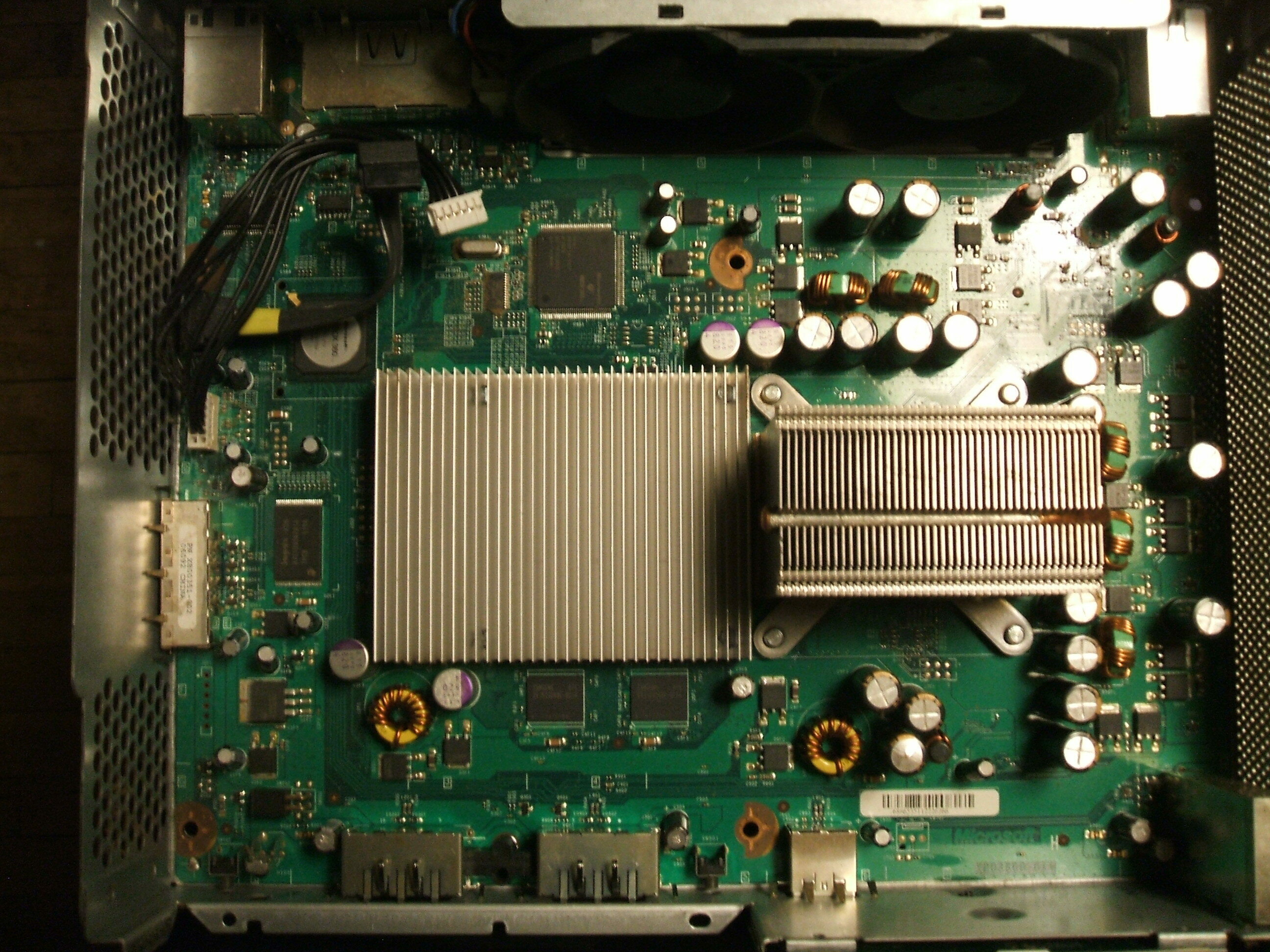
Xbox 360, il ressemble au Xbox 2001. Plus simple.
Les Microchips peuvent être changées avec «Chip Quik SM».
On peut voir la «Boite X». Ce Xbox fonctionne, je l'ai ouvert pour l'étudier.
Ce n'est pas très complexe, c'est d'avoir les bons outils et les pièces de rechange.
Il y a différents types de Xbox 2001 et 360, ça dépend de l'année qu'ils ont été faits.
Les pièces sont assez similaires, il peut y avoir une différence pour certaines pièces.
#Electronic #Xbox #Microsoft #VideoGames #2001 #Technologie #Électronique

